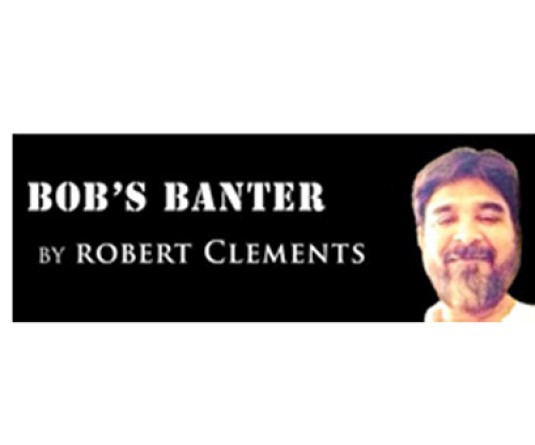
Arkotong Longkumer
‘How many roads must a man walk down, before you call him a man’, emanates hauntingly as the palpable light from the TV screen takes form. The image is that of a scruffy looking man, in his mid sixties, talking about his life. He feels uncomfortable to be referred to as a ‘protest songwriter’; he shrugs off comments that he was ‘political’ in any way. (When asked by a reporter, ‘How many protest singers are there now (in the 1960’s)? He replies ‘136…or maybe 142’, with a sardonic, deadpan wit.) A friend comments that ‘maybe he was politically naïve; he was not at all political, but now thinking about it, he was much more sophisticated than most of us’. Then, to say that Dylan’s songs were protest songs—topical during those years—against racism and the war is largely debated. Does a songwriter ever need to be pigeonholed into a category to make him sound topical?
Bob Dylan has tried to avoid putting himself into a genre for most of his life, where his songs are confined into a category, making it virtually impossible to venture outside that imposed classification (the visceral uproar was evident when he went electric from his largely folk acoustic set). During one of the press conferences, an English reporter, obviously eager to get on with the agenda, asked Dylan if he really cared about what he was saying. In one of his most vicious, scissor cut replies, he shot back, ‘How can I answer that, if you’ve got the nerve to ask it? Do you ask the Beatles the same question?’ Here was this poet extraordinaire escaping the pull of the world asking for a message. He had none to give. It was as if Dylan has cut a piece of a pie and refused to eat it. The complexity of the man is profound.
But ‘if you are interested,’ says Joan Baez, ‘he goes way, way deep.’ ‘Bob Dylan’s songs’, another commentator goes on to say, ‘could be ancient with a voice singing in the present, or a present songwriter talking about the ancient’. Bob Dylan captured an entire generation living in the Sixties. His songs portrayed the Civil Rights Movement, the Communist era, the Atom Bomb, catapulting him from a folksy character singing folk tunes to a person singing songs that mattered to everyday folk. As a contemporary recalls, ‘he was saying things we all wanted to say, but could not say’. And, among all the colloquialism of his songs, there lay an underneath current that swept away raw emotions into a sophisticated consciousness that makes his songs resound through the generations. The euphoria surrounding such a man created an Atomic sensibility which escapes notions and locution. No ideology. Just songs.
What do we make of Dylan’s songs today? Are we still conscious of the movement that catapulted a nation into fervour about things they cared for? Reading Civil Rights literature, the anti-Vietnam war monographs, one sometimes gets the impression it created a huge space for ideas, where some of that space was taken by the shouting groups promoting different agendas. Sometimes the true message can become a whisper. Yet the whisper, though deafened by screams, was heard. The crux of the movement was about listening to each other. Perhaps Dylan simply helped people to listen. Though many expected Bob Dylan to march, to be in solidarity with the workers, the anti-war activists, he was disinterested in their politics, unengaged in their movements. He was not ignorant of the politics, but it is difficult to be the messenger and the leader at the same time (or ‘love’ and ‘wise’ at the same time). The descriptions, the images, and perhaps even messages of his songs still affect generations and in their way contribute to the whisper being passed on.
Whatever his reasons were, Dylan’s refusal to declare his political allegiance and stand up with the crowd created disharmony within the body politic. But what role should he have taken, how does a man with such an aura be the charisma shouldering the cross? Do the songs lose value because their writer is not chanting them along with the protesters line by line? These questions are put aside by Dylan. He does not have an answer—he asks ‘why do I need to give answers?’ Dylan’s songs reflected that era in a way more poignant and profound than his contemporaries, they have lasted generations and will no doubt strike a chord with further ones. In a very Zen like way Dylan rests his case. How many roads…..? The rest is for the critics to decipher.
When we wage a political war, wherever in the world, we have a particular ideology. We expect people to follow—we want following. Yet, underneath it all, once the message surfaces and is claimed by the people, it loses the ability to be metamorphosed into something genuine without anyone claiming some sort of heritage to it. Leave the claim aside and let it become the air we breathe. To have a following let the message stand for itself—we lose if we brandish a gun. If the message is genuine, even with the clamour, the whisper is so much more soothing.






